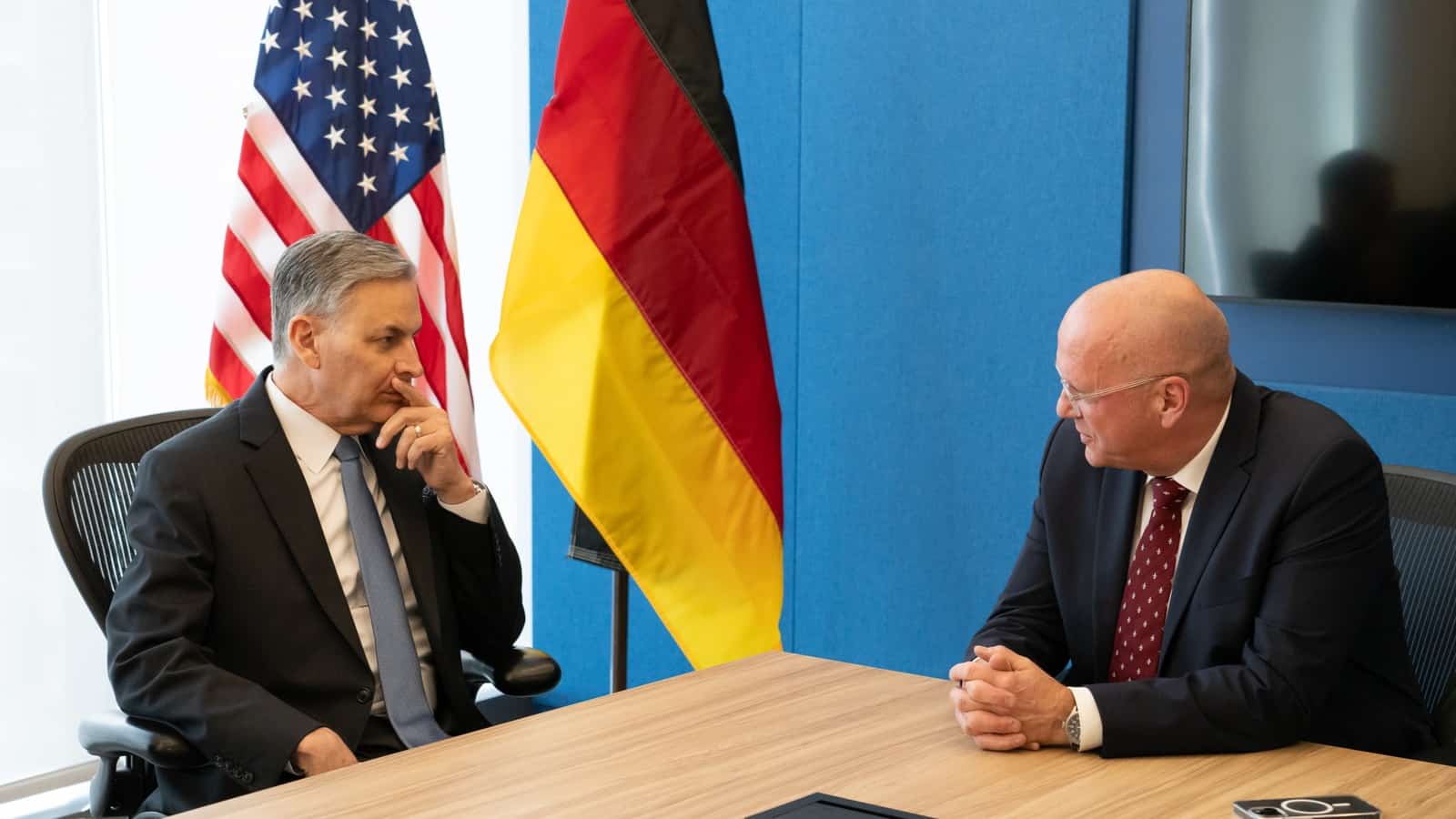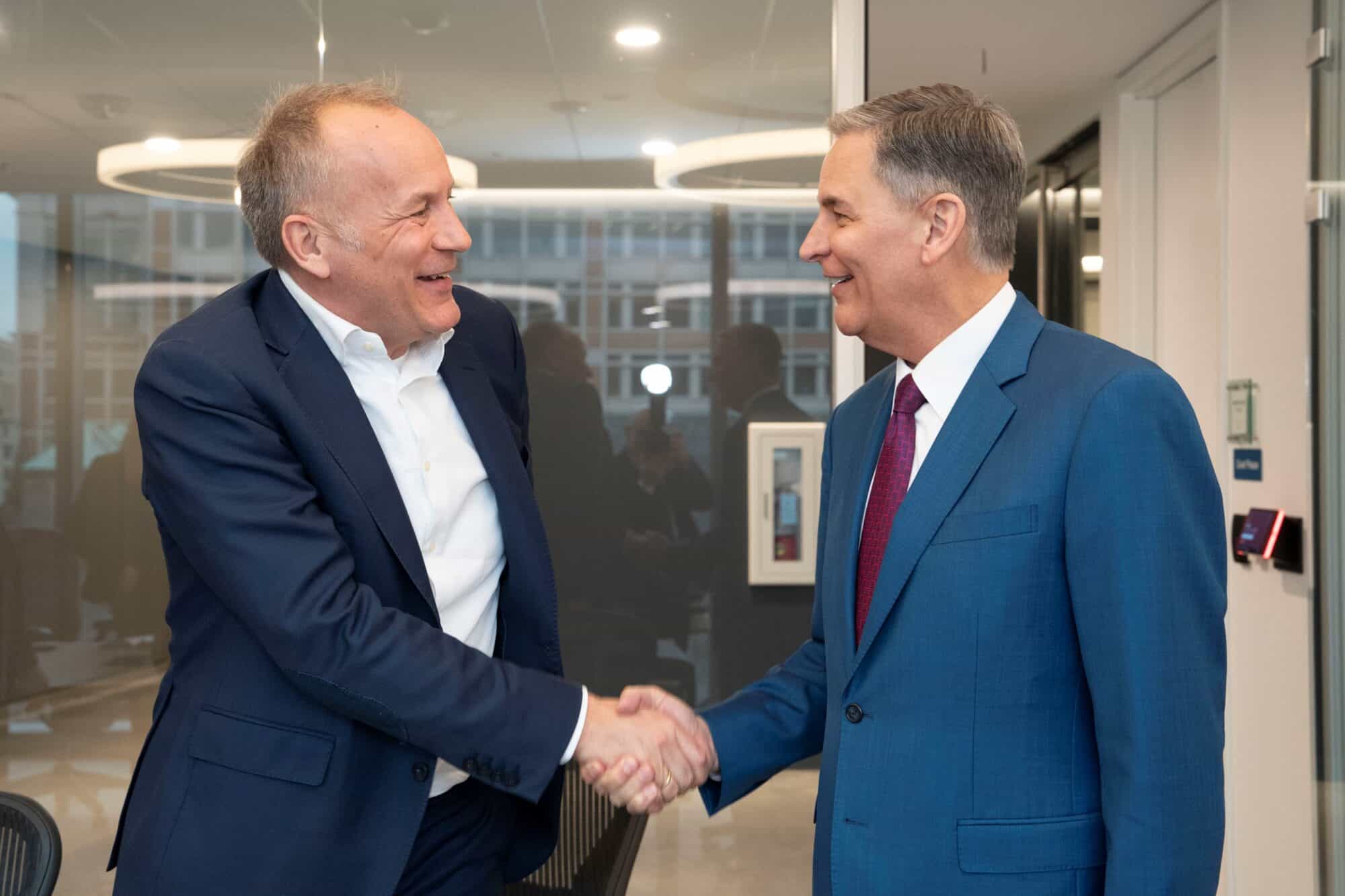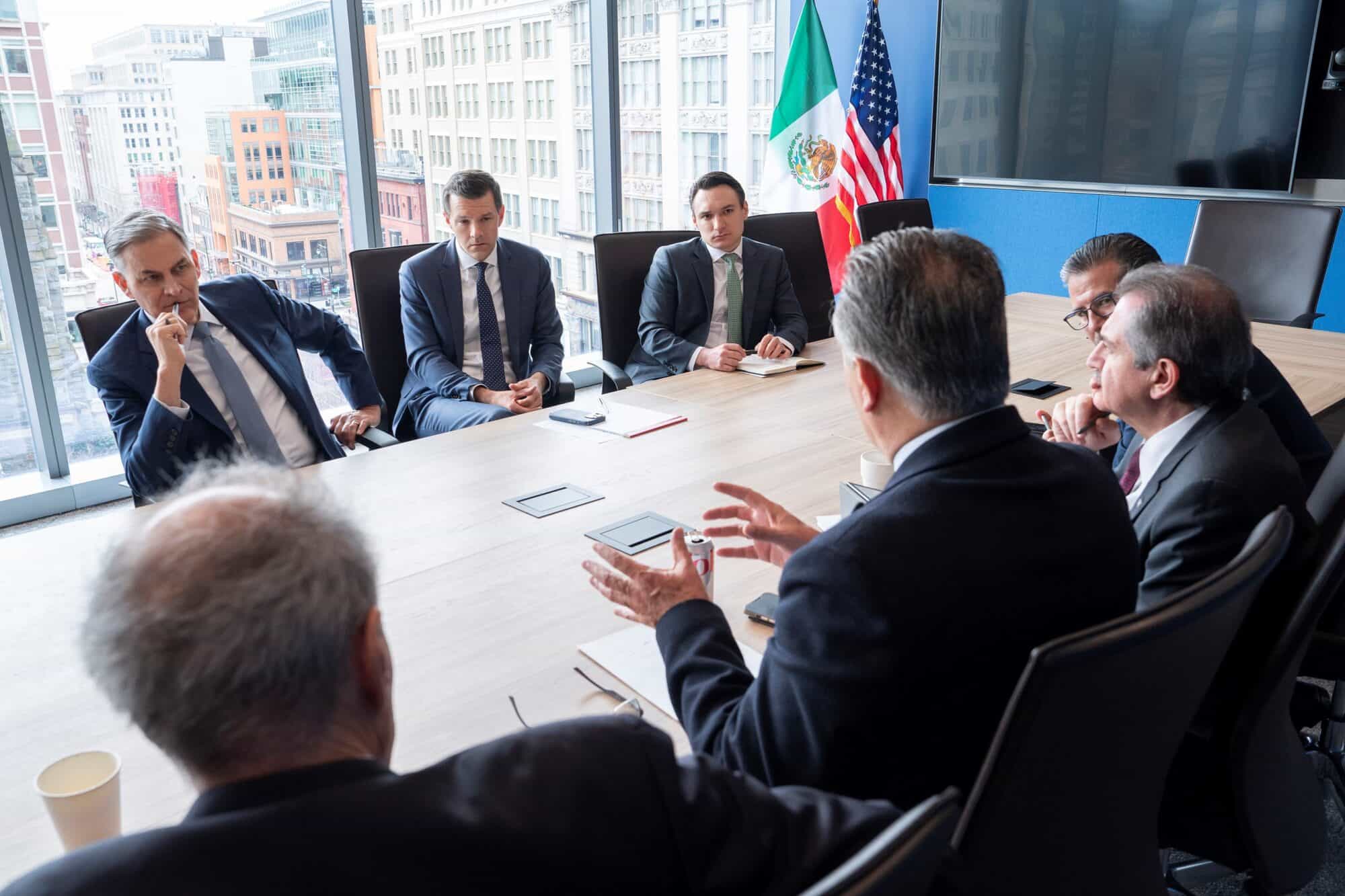NAM Hosts German, Mexican Delegations

The NAM was host to multiple representatives and dignitaries from Germany and Mexico last week for a series of meetings aimed at strengthening the ties between the two countries and the U.S.
What’s going on: On different days last week, the NAM met with German Ambassador to the U.S. Andreas Michaelis; the leadership of the Mexican Business Coordinating Council; the presidents of the Federation of German Industries and the Germany-based Mechanical Engineering Industry Association; and a delegation from the Germany-based Transatlantic Business Initiative.
- A discussion common to all the gatherings: improving international cooperation to support closer economic partnerships between our countries.

The U.S.–Europe relationship: In a meeting with Michaelis, Germany’s ambassador to the U.S. since August 2023, the NAM expressed the importance of a continued, positive economic relationship between the U.S. and Europe—especially now, given Russia’s continued war against Ukraine.
- “Great to meet with German Ambassador to the U.S. Andreas Michaelis to discuss the importance of strengthening our economic ties and our shared democratic values,” NAM President and CEO Jay Timmons wrote in a social post.
- Germany, the fourth-largest economy in the world, is a vital U.S. trade and investment partner. In 2022, it contributed $196 billion of manufacturing trade and $218 billion of manufacturing investment.

Challenges remain: However, some proposed and expected European Union regulations present a hurdle to future collaboration, a matter the NAM raised in its meetings.
A key partner: In their discussion with Mexican Business Coordinating Council President Francisco Cervantes—with whom Timmons met last summer ahead of the third United States–Mexico–Canada Agreement “Free Trade Commission” in Cancun, Mexico—NAM leaders underscored the significance of the increasingly close trade ties between the U.S. and Mexico.
- In 2023, for the first time in two decades, Mexico became the leading source of goods imported into the U.S., and in 2022, the value of the U.S. products and services trade with Mexico was $855 billion.
- The CCE is Mexico’s broadest business federation.
Concerning disruptions: Last year, in a move that worried both the NAM and the CCE, the U.S. twice suspended the processing of commercial imports from Mexico so it could redirect U.S. Customs and Border Protection personnel to handle an influx of migrants at the U.S.–Mexico border.
- These temporary closures cost manufacturers in the U.S. hundreds of millions of dollars each day.
USMCA: The groups also discussed the USMCA, underscoring the importance of maintaining this critical agreement while also continuing to spotlight commercial challenges in Mexico:
- Its energy policies, which favor Mexican energy firms and have denied and revoked permits to major U.S. energy investors
- Its de facto ban on genetically modified corn, as well as some of its telecommunications-sector policies and its treatment of state-owned enterprises
